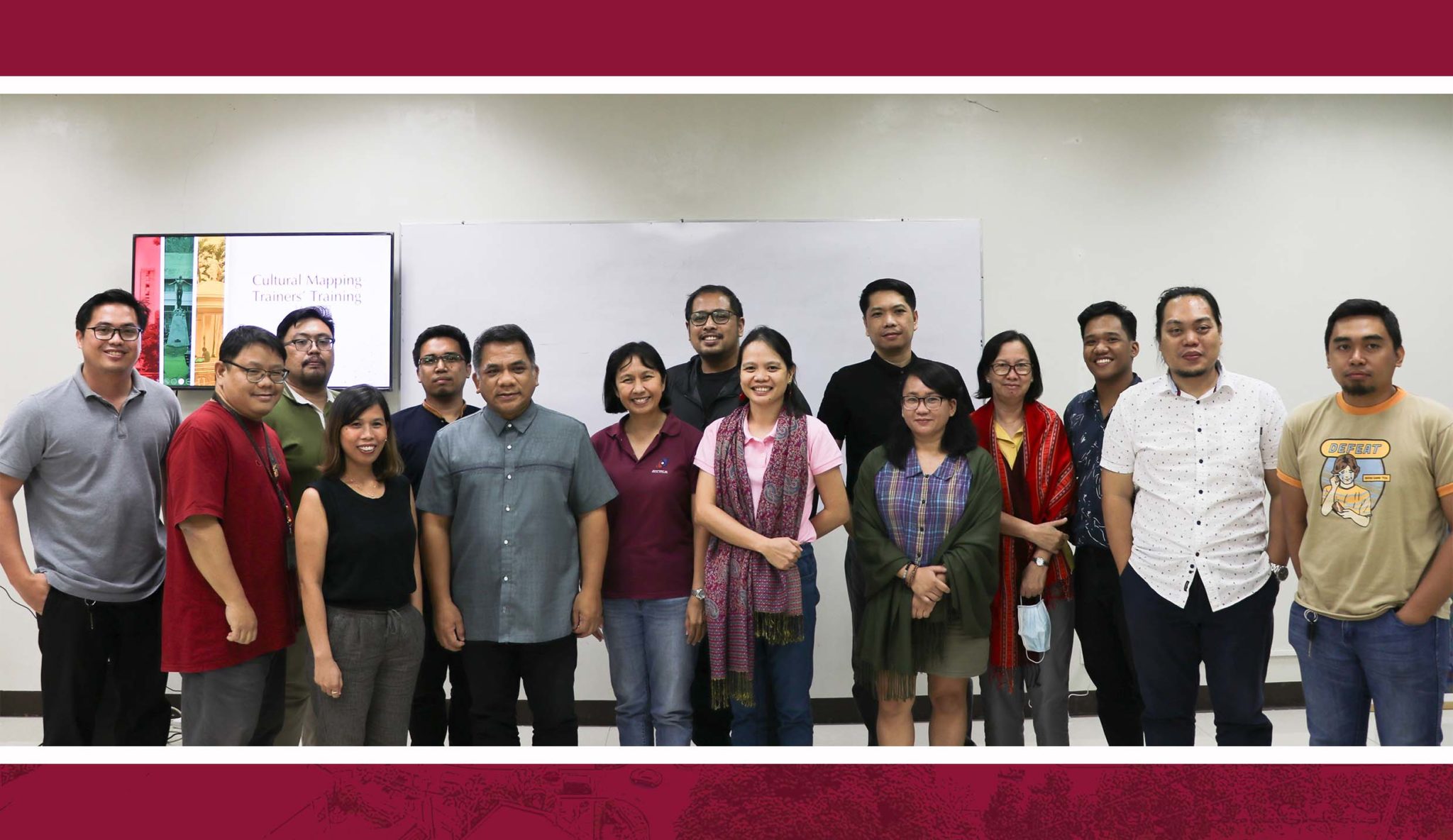
Cultural Mapping ‘Full/Block’ Training
Republic Act No. 11961 institutionalized the use of cultural mapping to aid in the documentation, promotion, and conservation of heritage by the various localities in the Philippines. However, budget constraints, availability of volunteers or personnel, and the extensive time allotted for the project such as in the training alone remain some of the major challenges keeping municipalities from accomplishing the task.
To address these challenges, the University of the Philippines Department of Social Sciences (DSS) through its Public Service Program ‘Soksay sa Barangay, Barangay sa Soksay' would like to offer either customized block training or a full training to suit each community's situation.
Cultural Mapping Full Training
The Cultural Mapping Full Training version is a full five-day training for the local mappers of the community. This training includes the documentation of all types of heritage properties based on the forms utilized by the National Commission for Cultural and the Arts (NCCA) and the Seal of Good Local Governance (SGLG).
Depending on the Memorandum of Understanding between the UPLB, DSS, and the local government unit (LGU), the services can be limited to the training only or could include support to the validation process, submission of the final forms to appropriate national-level offices, and possible end-use of the data.
Cultural Mapping Block Training
Through the ‘Block’ version, the LGUs can now customize their training by choosing one (1) or two (2) types of heritage properties that they want to focus on given their current specific situation. The LGUs can choose from the following:
| Type of Heritage | Included Heritage Properties | |
| Tangible Immovable Natural Heritage | Natural land formations, bodies of water, local flora and fauna, protected areas | |
| Tangible Immovable Built Heritage | Government structures, private buildings with historical significance, commercial establishments, educational complexes, health facilities, places of worship, monuments and markers, sites, vernacular architecture | |
| Tangible Movable Heritage | Archaeological objects, ethnographic objects, religious objects, works of industrial/commercial arts, artwork, archival holdings, natural history specimen | |
| Intangible Heritage | Language, oral traditions and expressions, performing arts, social practices, rituals, festive events, knowledge and practices concerning nature and the universe, traditional craftsmanship | |
| ‘Civic’ Heritage | Significant personalities, cultural institutions, and local government programs related to heritage | |
The training for one type of heritage property will be two days. This will include principles and laws governing heritage and cultural mapping, ethics of cultural mapping, the type of heritage to be documented, and an actual trial mapping. For two types of property, three days will be allocated.
For the Block version, the requesting LGU should provide a list of five to ten (5-10) of the local heritage properties that they want to document. This is to ensure that the community can achieve their target in consideration of their budget, manpower, etc.
The minimum target output for the Block versions is a copy of the initial drafts of all listed heritage properties. The community may opt to continue with the mapping process up to the submission to the national agencies and/or end use on their own, or they can also enter a new MOU with the UPLB and the DSS for further assistance.
Contact Details
For requests for training, please fill out the Request Form through this link: https://forms.gle/bGoGgQkGXyBQVZc47. For further inquiries and transactions, please email the Department of Social Sciences at dss_cas.uplb@up.edu.ph. Kindly also indicate "Cultural Mapping_ (Name of Your Municipality/LGU)" as the Subject of your email for easier identification.
